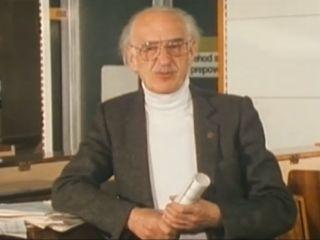

Bojan Adamič is definitely the most important name in those early days of jazz in Slovenia. Trumpet player, composer and conductor, he founded the Dance Orchestra of Radio Ljubljana in 1945, which still operates today as the RTV Slovenia Big Band. During this time, several other orchestras were formed, and in addition to Bojan Adamič, the legendary Jože Privšek also helped popularise jazz music. As a conductor, composer and arranger, he took the Ljubljana Dance Orchestra to the top of jazz ensembles in Europe. There was a considerable increase of interest in jazz music in our country in the 60s, as the first Yugoslav jazz festival was held in Bled in 1960, and it still functions today as the Jazz Festival Ljubljana. During the eighties and nineties, groups emerged that combined pop and jazz.
The RTV Slovenia Big Band has always participated, and regularly recorded and performed with many of the names of Slovenian music. Percussionist and jazz drummer Drago Gajo has contributed exceptionally to the popularisation of jazz in Slovenia with his Jazz Club Gajo in the heart of the capital. Today, many clubs around the country are exemplary in preparing jazz programmes as well. More and more young musicians are involved with this music.
Young hopes of Slovenian jazz
An interesting documentary about the younger jazz generation was created by the author and film director Tina Lešničar and director Janez Stucin. “Čas za improvizacijo” (Time to improvise) is a documentary film that gives an insight into the lives of young Slovenian jazz musicians, most of whom have performed or are gained musical experience abroad. The documentary has already been shown at numerous festivals around the world.
The love of jazz is so strong that you will follow it to the ends of the earth
You take your instrument and embark on a search for the Holy Grail. First, within the educational institutions, and then in search of freedom. And improvisation. This is how young jazz hopefuls embark on European and American stages in search of improvisation. Actually, improvisation is their way of life. The documentary gives a face to music and presents eight prominent young jazz musicians. It follows them to Vienna, Rotterdam and New York, follows their striving for perfection and the search for their place in the music.
And how did the author, Tina Lešničar, come up with the idea of showing the life of young Slovenian jazz musicians in a documentary film? “Jazz has followed me from an early age. My father, a doctor by profession, played piano as a hobby in the Greentown Jazz Band and I have been listening to stories of American tours and anecdotes from the lives of musicians since my childhood. I too have been learning to play the piano for nine years, and for the last two years I was playing mostly jazz with my professor. I've always been attracted to this sound, filled with surprises and a bit “dirty”. I love the rough voices of the singers, the harrowing cry of the saxophone, the gentle melodies of the trumpet and the deep bass lines and complex rhythms of the drums. I find the contradictions in jazz interesting: rationality-spontaneity, structure-improvisation, physicality-spirituality... Everything is so overwhelming, which inspires me all over again when writing about jazz”, said Tina Lešničar, a professional journalist.
The idea of making a film occurred when preparing a series of articles on Slovenia’s new jazz generation which Tina Lešničar was writing for the newspaper Delo. The first articles were published in 2011, followed by video portraits for the Delo website. “That's when I realised how film-like jazz basically is and thought it would be – given that jazz rarely finds a place in Slovenian media, both printed and visual – good to make a film on the efforts of young people in music, which is quite marginal according to its reach and reception.”
Due to her experience with film production, she embarked on the venture. According to her, her film initiation was an exciting and busy one. Their team was small, without an outlined script and with merely a wish to catch as much authenticity and spontaneity as they could, both on and off stage.
And what differentiates young Slovenian jazz musicians from other jazz musicians in the world?
“In terms of the passion and dedication to this music and the sense of accountability for work, they are the same as all musicians who cultivate a love of this music. They differ perhaps in the fact that Slovenia doesn't have a Jazz Academy, where they could continue their studies after finishing the Conservatory for Music (KGBL – Conservatory for Music and Ballet in Ljubljana) and which would later open new job opportunities for them. That's why they go abroad to pursue knowledge, and some of them stay. They pursue knowledge most commonly from the Academy of Music and the Conservatory in Graz, Linz, Vienna, Klagenfurt, as well as Berlin, Amsterdam, Rotterdam, Groningen and, of course, New York and Boston”, Tina concludes. The Slovenian jazz scene is strongly influenced by the fact that we haven’t had a real jazz club for several years now, where musicians could perform every day of the week – introduce their own music, socialise and share musical ideas onstage. This social part of jazz is very important for the development of a scene.
“Čas za improvizacijo” (Time to improvise) is definitely a good tribute to Slovenian jazz musicians, which shows their musical sensation, thanks to the plethora of imaging and audio material. This is a documentary film where music has the final say, so you can really feel the lives and improvisation of jazz musicians.
Polona Prešeren, SINFO

































































